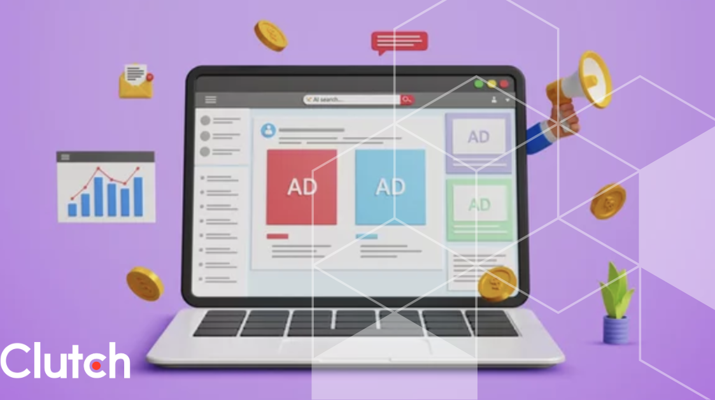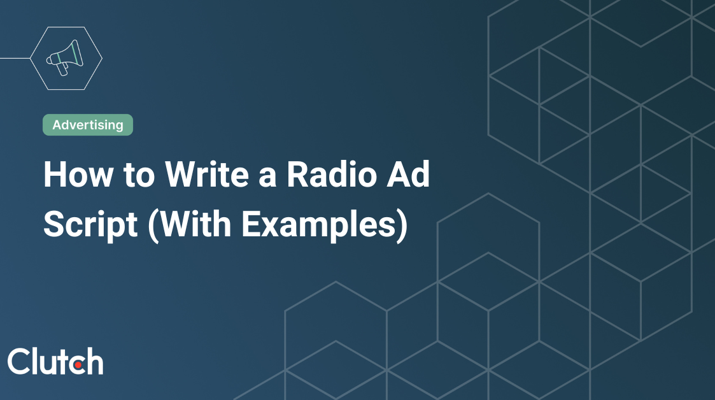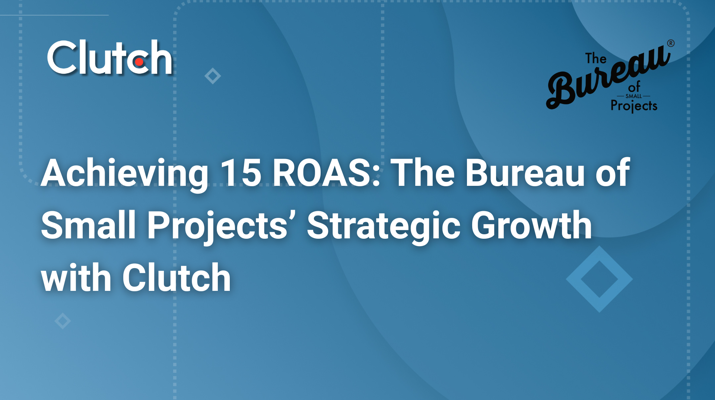

Updated December 19, 2025
Explore some of the best PPC advertising examples from well-known brands. Learn what makes each campaign effective so you can apply those strategies to your own ads.
Whether you're engaged in a Google search or casually browsing through social media, there are PPC ads. This marketing strategy involves businesses showcasing ads on platforms like Google (through paid search) and Facebook (via paid social), and they only incur charges when someone clicks on their ads.
Renowned for being a cost-efficient and highly impactful advertising method, PPC ads have gained immense popularity among businesses of all scales. PPC is a digital marketing channel that drives more traffic and conversions from search engines.
PPC provides detailed metrics and data to track and optimize campaigns, allowing you to measure your return on investment (ROI) and make data-driven decisions.
You're not alone if you find yourself searching for methods to generate initial traffic and sales for your new business or contemplating strategies to expand your brand's online presence. Pay-per-click (PPC) advertising can be a valuable tool. While PPC offers an excellent opportunity to market your business and reach a broader customer base, it can initially appear perplexing for newcomers to the channel.
Find the top PPC agencies on Clutch by browsing our directory.
Converse, the renowned global footwear powerhouse, enlisted the services of marketing agency Anomoly intending to enhance online engagement among their teenage audience creatively and enjoyably.
In their quest, they delved into valuable insights and leveraged the power of Google Ad to seamlessly integrate themselves into the cultural fabric that resonated with their audience.
Instead of immediately pushing their products, they fostered "converse-actions" by crafting PPC campaigns that precisely targeted the trending search terms their potential customers were actively exploring.
Rather than relying on conventional advertisements, Converse opted for a more interactive approach by initiating a dialogue with viewers.
Through engaging ad copy and a network of related microsites, they captivated the audience and enticed them into a profound and content-driven experience. Not only did this engage the audience in a total unexpected way, but also still helped drive large volumes of traffic to converse.com.
Here are a few example keywords they used:
On a slim budget of $100,000, the campaign attracted over 600,000 unique visitors, more than double the goal, and beat a traditional cost/visitor by 2600%.
The Converse “Domaination” campaign is effective because it meets its audience where they already are. It targeted users searching for culturally relevant, trending topics rather than leading with a hard product sell.
By targeting popular, curiosity-driven keywords and crafting engaging, conversational ad copy, Converse sparked interest and encouraged interaction instead of interruption.
The use of microsites extended the experience beyond the ad, creating a memorable, content-driven journey that felt authentic to a teenage audience.
This strategy drove significant traffic at a fraction of traditional costs, proving that relevance, creativity, and intent-based targeting can deliver outsized results even on a modest budget.
In PPC advertising, targeting misspelled search terms is a well-established practice. However, Snickers elevated this strategy to unprecedented heights. Collaborating with the ad agency AMV BBDO and Google, they acquired a comprehensive list of the top 500 search terms.
Leveraging a clever algorithm, they generated an extensive catalog of 25,381 unique misspellings.
Jessica Langdell, representing AMV BBDO, unveils the compilation of misspellings that remarkably drove substantial traffic to Snickers' campaign.
Within two days, Snickers recorded an impressive 558,589 ad impressions, resulting in a click-through rate of 1.05%. Consequently, 5,874 visitors were enticed to explore the campaign's dedicated mini-website, yourenotyouwhenyourehungry.com.
The Snickers “You’re Not You When You’re Hungry” campaign was effective because it turned a simple PPC tactic into a highly creative, data-driven strategy.
By identifying and targeting thousands of common misspellings, Snickers captured attention in moments when users were most likely distracted or rushed. Unlike other brands, this perfectly aligned with the campaign’s core message.
The scale and automation behind the approach allowed the brand to reach a massive audience efficiently, while clever, context-aware ad copy reinforced brand recall and encouraged clicks. This combination of smart targeting, brand-aligned creativity, and efficient execution drove high impressions and strong engagement in a very short time.
The astute ad professionals at Mindshare devised a distinctive adaptive planning strategy. Recognizing a significant shift in consumer behavior, they observed that individuals seek information about colds or flu on Google rather than consulting a doctor.
Harnessing this valuable insight, Mindshare leveraged Google's capabilities to target cities across the country experiencing real-time flu outbreaks geographically.
This enabled them to concentrate their PPC campaign precisely where it mattered most, aligning with the appropriate locations.
Over 18 months, Mindshare diligently examined search patterns associated with colds and flu, meticulously comparing them with other pertinent data such as calls to Government health lines and doctor visits.
By constructing a sophisticated model, they successfully forecasted real-time flu outbreaks at the city level. The effectiveness of this approach was truly remarkable.
Their location-specific approach paid off. A large percentage of Kleenex UK's media budget was directed toward regions grappling with active flu outbreaks, and sales saw a significant year-over-year boost during that time.
The Kleenex “Catches Colds” campaign was effective because it aligned advertising spend with real-time consumer need and intent. By analyzing search behavior and health data, the team was able to predict flu outbreaks at a city level and activate PPC ads precisely where demand was highest.
This hyper-local, data-driven approach ensured that ads appeared when people were actively searching for cold and flu information, making the messaging timely and highly relevant.
By concentrating budget in affected areas, Kleenex maximized efficiency, reduced wasted spend, and directly connected advertising exposure to increased sales during peak illness periods.
A luxury ski apparel retailer called Saint Bernard had been running Google Smart Shopping ads for over a year, but revenue and profit had plateaued. To turn things around, they hired Omnitail, a Clutch-listed PPC agency experienced with e-commerce.
Omnitail didn’t tweak everything randomly. They started by rebuilding the campaign from the ground up. First step: split products into groups based on profit margin. This let them control bids and budgets with clarity. Then they separated top-sellers into their own campaign so that hit items didn’t overshadow others.
Next, they implemented a mix of Smart Shopping and traditional Shopping campaigns. That ensured all products stayed visible, even less popular ones. They assigned target ROAS (return on ad spend) goals based directly on margins, so ads would run only when they made sense for profit – not just traffic.
Then came the daily check-ins. The team monitored each product group, tweaking budgets or bids if targets drifted. If a group was performing, they let it run; if not, they pulled back.
Results speak for themselves:
Campaign highlights:
This campaign proves that precise setup – not just generic automation – is what drives serious results. Omnitail focused on clean data, smart segmentation, and pure profit focus. And it paid off.
This campaign was effective because it replaced generic automation with a disciplined, profit-driven PPC strategy. By restructuring the account around product margins, Omnitail ensured bids and budgets were tied to profitability rather than traffic alone.
Separating top-selling products into their own campaigns prevented them from consuming spend at the expense of other inventory, while combining Smart Shopping with traditional Shopping kept visibility balanced across the catalog.
At the same time, assigning target ROAS based on real margins meant ads only ran when they made financial sense, and daily monitoring allowed the team to quickly scale what was working and pull back where performance slipped. The result was a system built on clean data, smart segmentation, and continuous optimization.
After the holiday rush, sales at cocktail mix brand Savorly began to slow down. The team knew their product line was strong, but their Google Ads campaigns weren’t delivering the volume or efficiency they needed to grow. That’s when they brought in Page Zero Media, a Clutch-verified PPC agency based in Toronto, Canada.
Page Zero didn’t take over everything. Instead, they focused on one thing: Google. That’s where people were actively searching for Savorly’s niche products: things they weren’t likely to find in stores or on social media.
The engagement started with a detailed look at what was already in place. The Page Zero team looked at past campaign data, spotted keyword trends, and rebuilt the account to focus on specific product searches. They worked closely with Savorly’s founder to make sure the paid search strategy matched the company’s goals and adjusted as new products or promotions rolled out.
As the campaign evolved, the team layered in conversion tracking for smaller actions like cart additions and signups. They also made small, regular adjustments to bids and budgets, responding to what the data showed each week. The agency’s owner stayed hands-on the whole time, sharing ideas, reviewing progress, and keeping the team in sync.
The results were easy to spot. Site traffic more than doubled, and the cost-to-impact ratio dropped significantly. According to Savorly, Page Zero didn’t just hit the brief – they became a trusted partner and source of long-term marketing guidance.
Campaign highlights:
This campaign worked because it stayed focused. By honing in on one channel and refining it continuously, Page Zero helped a small team compete in a crowded space, without wasting a dollar.
This campaign worked because it stayed focused. By honing in on one channel and refining it continuously, Page Zero helped a small team compete in a crowded space, without wasting a dollar.
Their frequent, incremental adjustments to bids and budgets allowed them to reduce spend on underperforming campaigns while investing more in high-performing ones to maximize their results. This ongoing fine-tuning helps maintain efficiency, improves ROI over time, and ensures your budget is always working toward the strongest opportunities rather than relying on outdated assumptions.
For several compelling reasons, PPC advertising has garnered immense popularity among businesses, regardless of size.
Firstly, it is widely recognized as a highly cost-effective advertising channel. Additionally, one of its unique advantages is that it can be developed and managed internally, eliminating the need for substantial external investments.
Furthermore, PPC advertising stands out due to its exceptional measurability and trackability, which are rare in advertising.
Here's a brief overview highlighting the advantages of employing PPC advertising:
Advertisers have the flexibility to set a budget for their PPC campaigns. Based on their observed outcomes, they can easily adjust their ad spend by either increasing it to expand their reach or pausing it to halt expenditures temporarily.
This level of control allows advertisers to manage their PPC campaigns according to their desired outcomes efficiently.
The results of PPC ads can be accurately tracked and measured using tools such as Google Ads and Google Analytics. These powerful platforms offer real-time insights into crucial metrics like clicks, conversions, and impressions.
By leveraging these tools, advertisers gain a comprehensive overview of the performance of their PPC campaigns, enabling them to make data-driven decisions and optimize their advertising strategies effectively.
Using PPC advertising, users can target specific audiences according to their search behavior, browsing history, demographic information, and more. This level of precision allows advertisers to conduct tests and experiments with various targeting options, ultimately optimizing their campaigns to maximize impressions and effectively reach their desired audience segments.
Through strategic targeting, advertisers can enhance the efficiency and effectiveness of their PPC efforts.
To maintain a strong presence and prevent competitors from dominating SERPs, targeting keywords related to your brand or those associated with your competitors is essential.
By strategically incorporating brand-related or competitor-related keywords into your PPC campaigns, you can establish your visibility and ensure a competitive edge in the SERPs.
This approach helps to safeguard your brand's online presence and mitigate the influence of rivals in search engine rankings.
The data gathered from PPC campaigns can serve as a valuable resource to inform and shape your SEO and content marketing strategies.
By analyzing the insights derived from PPC campaigns, such as keyword performance, conversion rates, and customer behavior, you can gain valuable insights into the effectiveness of specific keywords and content approaches.
This information can then be utilized to optimize your SEO efforts and refine your content marketing strategy, ensuring you are targeting the right keywords and delivering content that resonates with your target audience.
An effective pay-per-click (PPC) campaign can surpass the outcomes achievable through search engine optimization (SEO) alone.
Although PPC can be costly and challenging to sustain over extended durations, SEO can lead to organic traffic growth over time. Indeed, while search engine optimization can enhance your search rankings gradually, a PPC campaign allows you to secure a prominent position on Google instantly with a simple click of a button.
PPC brings forth immediate traffic, enabling businesses to make well-informed decisions about promoting their products or services. It facilitates a comprehensive understanding of the optimal platforms to focus advertising efforts on while offering valuable insights into buyer behavior and market trends that can be leveraged.
The abundance of data PPC provides empowers businesses to eliminate guesswork from their advertising endeavors. They can closely monitor industry changes and gauge the market's response to their products, strategies, and messages.
PPC acts as a catalyst for business expansion by helping brands appear in high-visibility positions across search engines and digital platforms. It boosts sales by heightening brand awareness across various sites and platforms while providing the means to effectively measure return on investment (ROI), which is only possible with many traditional marketing methods.
PPC, short for pay-per-click, represents an advertising approach where you pay a fee to have your website featured on the search engine result page (SERP) when users enter specific keywords or phrases into the search engine.
The ads you design will be displayed on the SERP, guiding visitors to your site, and the number of ad clicks received determines the fee you pay. When executed effectively, PPC can generate high-quality leads.
By establishing a seamless user experience, your PPC endeavors can yield a significant return on investment (ROI). While PPC is quite easy to execute, it takes some planning and preparation.
While PPC advertising is predominantly employed in search engine results pages like Google or Bing, it is also utilized on social media platforms. However, the cost per impression (CPM) tends to be more prevalent in that context. Businesses leverage PPC advertising to attract traffic, generate sales, and receive inquiries from their target audience.
With popular PPC platforms, companies have access to exceptional targeting capabilities, enabling them to display ads exclusively to individuals who closely align with their customer demographic.
Search engines are the primary avenue for people seeking products or service providers. When there is an engaged audience actively searching for what your business offers, it presents a prime opportunity to secure a sale.
PPC empowers you to seize this opportunity by targeting and reaching these interested individuals, with a level of precision that traditional advertising cannot match.


